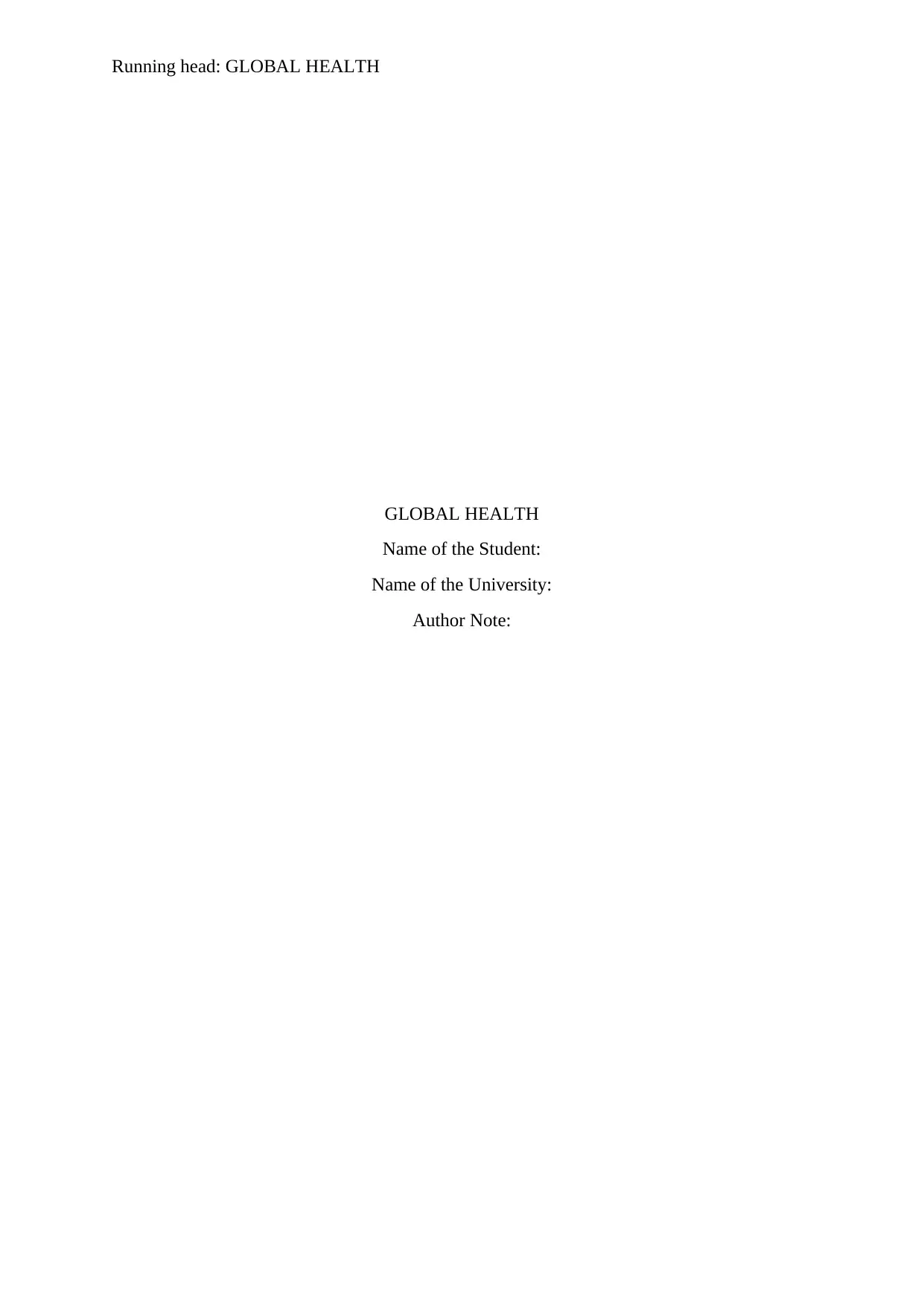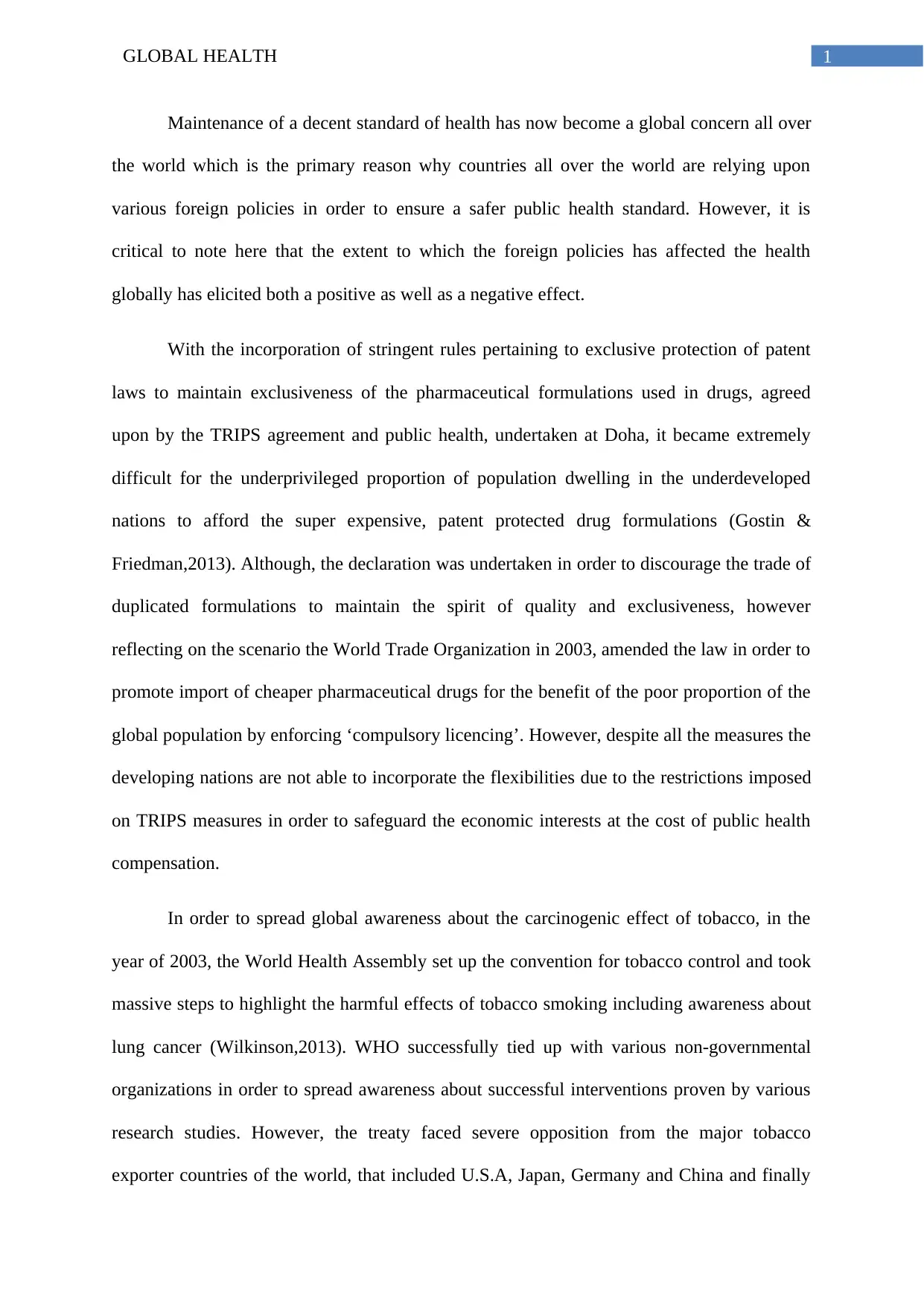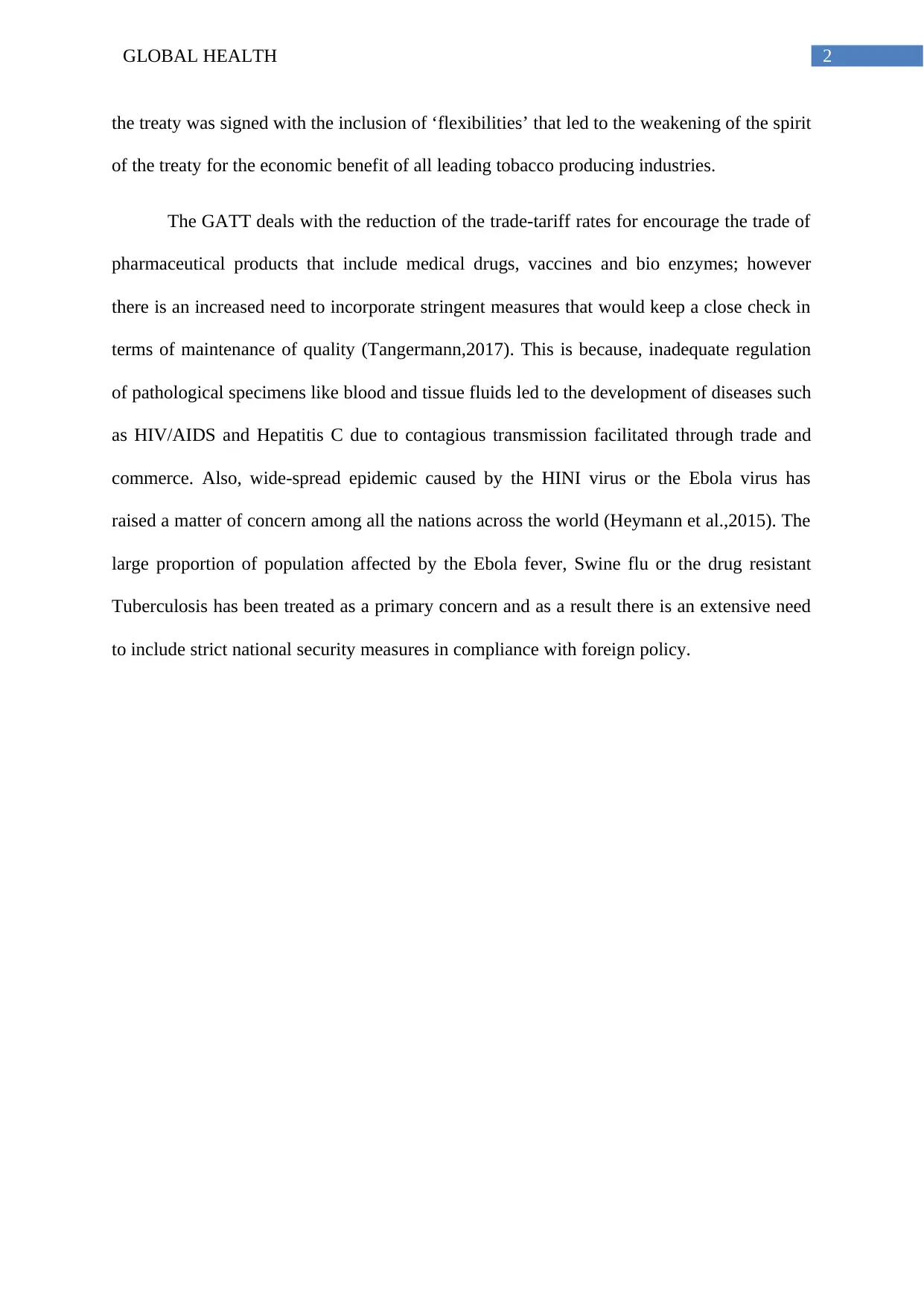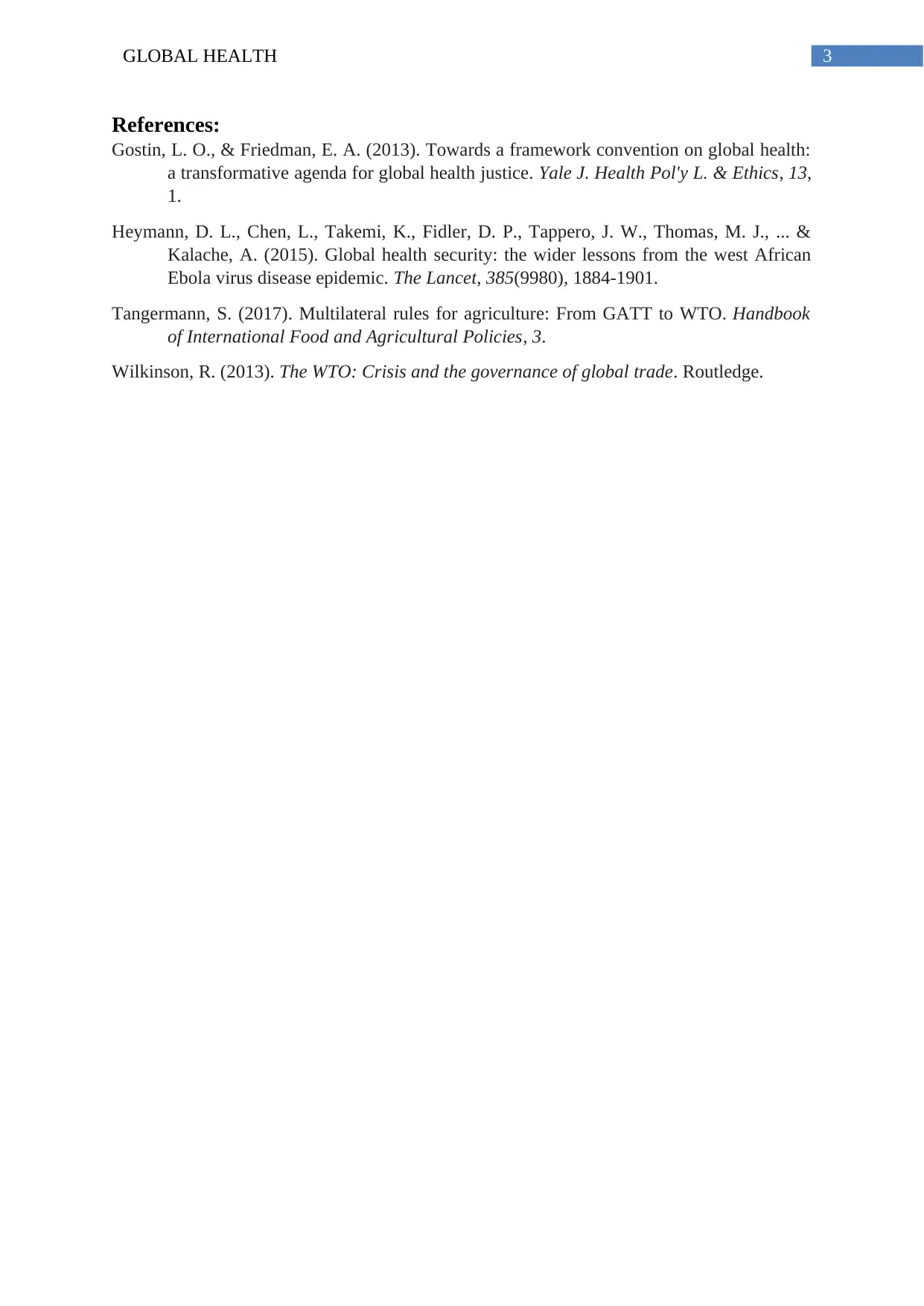Analyzing Global Health Issues Through the Lens of Foreign Policy
VerifiedAdded on 2023/06/10
|4
|740
|272
Essay
AI Summary
This essay examines the intricate relationship between global health and foreign policy, highlighting both the positive and negative impacts of foreign policies on public health standards worldwide. It discusses the challenges faced by developing nations in accessing affordable drugs due to stringent patent laws and the limitations of the TRIPS agreement, despite amendments aimed at promoting the import of cheaper pharmaceuticals. The essay also explores the World Health Assembly's efforts to control tobacco use and the obstacles faced due to opposition from major tobacco-exporting countries. Furthermore, it addresses the need for stricter regulations in international trade to prevent the spread of diseases and emphasizes the importance of incorporating national security measures in response to global health crises like Ebola and drug-resistant Tuberculosis. Desklib is a platform where students can find similar essays and study tools.
1 out of 4





![[object Object]](/_next/static/media/star-bottom.7253800d.svg)